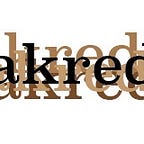Digital citizenship can be defined as the use of any form of technology in order to interact with others in a digital community space. The website aeseducation.com defines digital citizenship as, “Digital citizenship refers to the responsible use of technology by anyone who uses computers, the Internet, and digital devices to engage with society on any level. This is why digital citizenship is such a crucial topic to teach today’s students.” (Zook, 2019) Another website, schoology.com goes even further to say, “digital citizenship is how we should act when we are using digital tools, interacting with others online, and what should be taught to help the next generation be better stewards of this technology. For schools and teachers, it is what and how we teach our students to interact with each other.” (Cole, 2019)
Digital citizenship is different from digital literacy but both of the terms also have their similarities. The American Library Association (ALA) defines digital literacy as “the ability to use information and communication technologies to find, evaluate, create, and communicate information, requiring both cognitive and technical skills.” As detailed in the paragraph above, digital citizenship can be defined similarly to digital literacy because both concepts involve the use of technology responsibly in their respective communities.
The ways in which the two terms are different can be seen in the purpose of the two skills. Digital citizenship is more focused on the responsible use of technology and digital literacy is more focused on the ability to use technology to learn, retrieve, and communicate information on the internet.
American Library Association (ALA) Digital Literacy Task Force (2013). ALA Task Force releases digital literacy recommendations. Retrieved from http://www.ala.org/news/press-releases/2013/06/ala-task-force-releases-digital-literacy-recommendations
Fingal, D. (2017). Infographic: Citizenship in the digital age. Retrieved from https://www.iste.org/explore/articleDetail?articleid=192
Spicer, B. (2017). Digital Literacy: The New Pillar of a Child’s Education? Retrieved from
https://blog.myon.com/blog-post/digital-literacy-new-pillar-child%E2%80%99s-education
